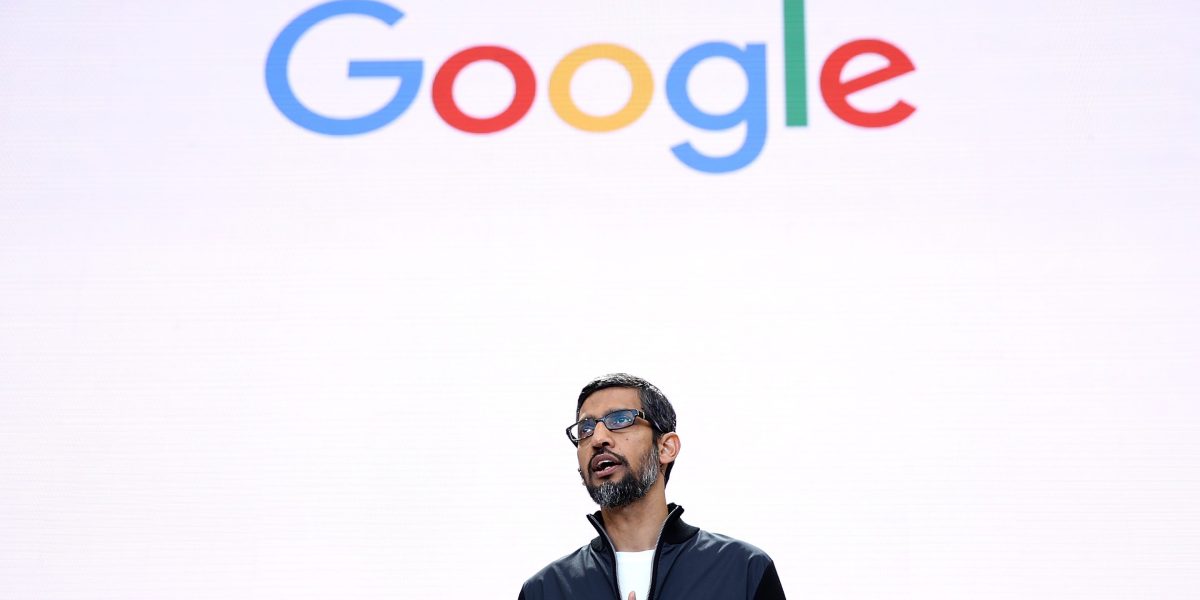
A federal judge ruled last month that Google is a monopolist, and on top of the penalties yet to come, the company may have to add a new multi-billion-dollar problem to its list of headaches.
Along with the Justice Department’s proposed remedies, which could reportedly include breaking up the business, Google could also face multiple class action lawsuits from advertisers seeking monetary penalties as payback for years of inflated charges. All told, the mounting tab for the tech giant could exceed $100 billion, on top of possible lawsuits from competitors that could bring other penalties, according to a Tuesday note by Bernstein analysts.
The antitrust suit, along with potentially billions in penalties sought in possible future lawsuits could lead Google to take a less aggressive strategic stance at a time where generative AI is revolutionizing its search business, Bernstein senior analyst Mark Shmulik told Fortune.
“The reality of an internet company is progress never stops. And if you’re going to be hampered, where maybe you’re fighting with one hand tied behind your back, it becomes a very difficult prospect to move as quickly as you’d like, and maybe as you need to,” Shmulik said.
The ruling found that Google used its dominance in text ads to charge “supra-competitive prices,” or prices above what would be sustainable in a competitive market, which allowed it to earn “monopoly profits” on text ads like those that appear near the top of search results.
Although text ads may seem antiquated, they make up 65% of the larger search ads market, according to the ruling. In 2020, text ads made up about 80% of Google’s search ads by revenue. That same year, the company’s “Google search and other” product category brought in $104 billion in revenue, according to a filing with the SEC.
The court found that Google used this monopoly power to raise prices on its search text ads between 5% and 15% to reach its revenue targets without losing customers to competitors. The ruling also found that Google didn’t take into account what rival firms were charging for similar text ads when setting its prices.
When reached for comment, a Google spokesperson directed Fortune to a previous statement by Google’s president of global affairs, Kent Walker. He praised Google and said the $1.9 trillion company plans to appeal the ruling.
Although not directly related to text ads, review and reservation company Yelp has already seized upon last month’s ruling to sue Google, saying that the company used its dominance in search to unfairly box out competitors in the market for “local search services and for local search advertising.” A Google spokesperson said “Yelp’s claims are not new.”
“Similar claims were thrown out years ago by the FTC (Federal Trade Commission), and recently by the judge in the DOJ’s (Department of Justice’s) case. On the other aspects of the decision to which Yelp refers, we are appealing. Google will vigorously defend against Yelp’s meritless claims,” a Google spokesperson said in a statement sent to multiple outlets.
Shmulik said Yelp’s lawsuit is one of the first to emerge after the ruling, and it’s possible other competitors in search could have standing to sue thanks to the ruling. That includes Microsoft, the creator of rival search engine Bing, which has spent over $100 billion on search over the past 20 years, CEO Satya Nadella said during the antitrust case against Google, according to the ruling.
“[Microsoft] can argue that, ‘Well part of the reason [Bing] never broke through was because of all these illegal behaviors Google engaged in, and so we want ROI on all of that investment,’” he said.
More than two decades ago, Microsoft faced its own antitrust reckoning and a subsequent surge of lawsuits could be an example of what’s to come for Google, according to Bernstein analysts. After a federal judge ruled against the tech giant in 2000, buyers of Microsoft’s PC operating system and other software products sued the company to try to claw back overcharges, mostly over a two-and-a-half year window, Shmulik said.
Microsoft settled those suits, along with several others from competitors that saw it pay out $1.9 billion to Sun Microsystems, $775 million to IBM, $536 million to Novell, and another $150 million to Gateway.
All in all, Microsoft paid around $10 billion in settlements, or about 11% of its net income, between 2002 and 2008, the Bernstein analysts found.
All signs point to potentially years of lawsuits capitalizing on the judge’s antitrust ruling against Google, said Shmulik.
“Far be it from me to judge how excited lawyers sound,” he said. “But the ones I’ve talked to sounded very eager for the work.”
In our new special issue, a Wall Street legend gets a radical makeover, a tale of crypto iniquity, misbehaving poultry royalty, and more.
Read the stories.














